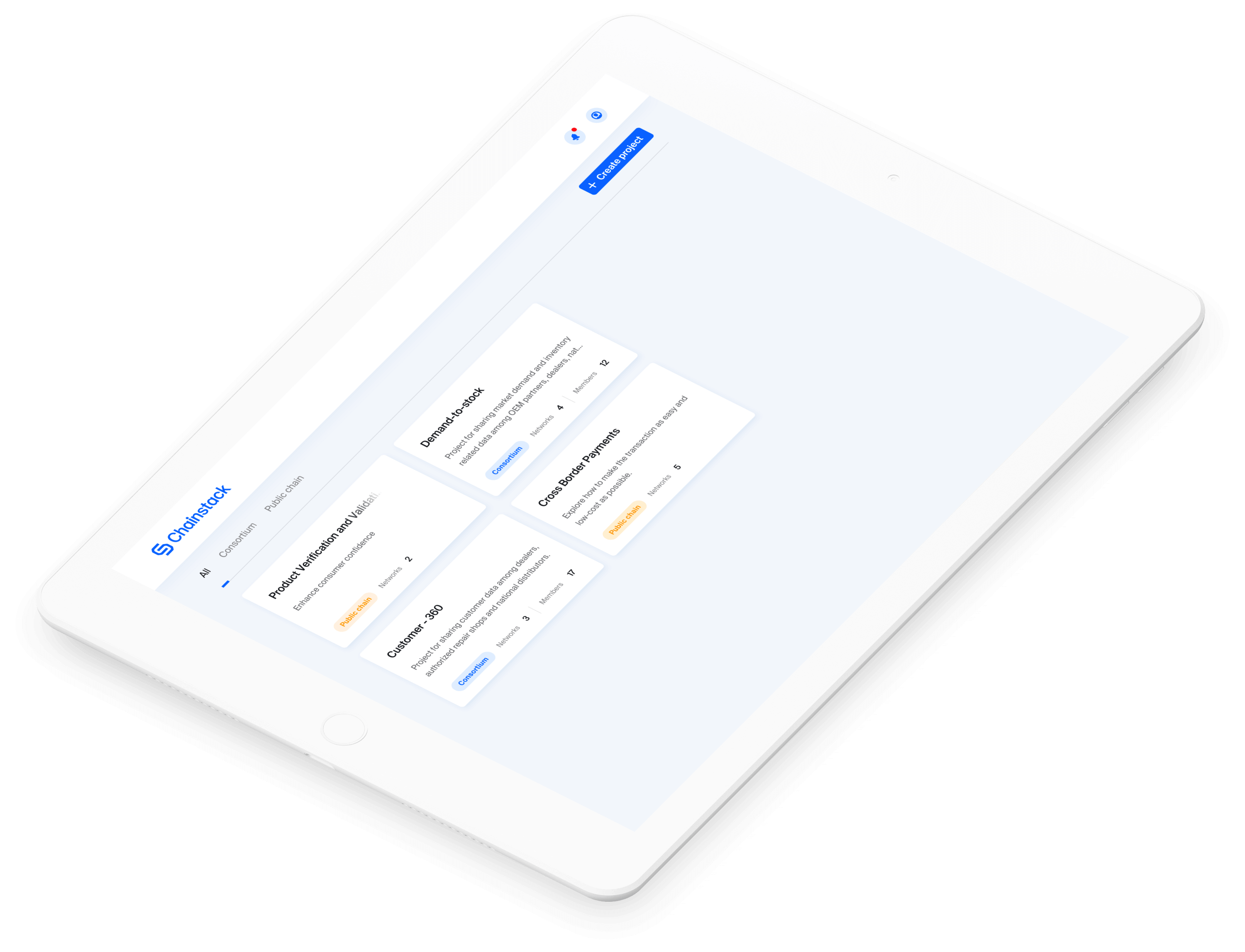Tips to handle RPC request errors

A very common scenario that our users have asked us to help with, is handling errors when sending RPC requests to their nodes.
In Chainstack, we offer tailored load balancing in the enterprise plan but not all users and projects can opt for that so we’ve decided to share some examples that you can apply at the application level in order to handle errors with RPC requests.
The problem
When sending RPC requests to a non-balanced blockchain node, it’s possible that some of them fail or timeout. Although this is a rare scenario, this can have a big impact on some applications like arbitrage bots. On our Enterprise subscription, all requests go through a Chainstack Load Balancer which makes sure that they hit a live node, however, other plans do not have load balancing enabled so handling these errors must be done at the application level.
Note: in order to test this, I created a few code snippets that send sequential RPC requests and use all the solutions provided below. You can find all the code examples in the following GitHub repository. In addition, most of the RPC requests shown below are for EVM-based blockchain nodes, although you can adapt most of these solutions to work with any API request or asynchronous methods.
Duplicate requests and use promises
One of the ways to handle this is to send the same request multiple times by using two ethers providers, each one with a different RPC endpoint. Then we can use multiple JavaScript Promise methods to handle the promises.
Promise.all
The first thing we need is a wrapper method that receives the RPC request promise and catches any errors.
/**
* @param {*} promise An RPC request promise to be resolved
* @param {*} origin URL of the node
* @returns resolved promise
*/
async function wrapRPCPromise(promise, origin) {
try {
const data = await promise
return { result: data, origin }
} catch (error) {
console.error('Error running method')
return new Error('Ops, there was an issue')
}
}We can use Promise.all() to wait until all requests have finished and their correspondent promises fulfilled or rejected. In the example below, we’re forcing an error in the mainProvider after the first RPC request.
let mainProvider = new ethers.providers.JsonRpcProvider(DEDICATED_NODE_RPC)
const backupProvider = new ethers.providers.JsonRpcProvider(BACKUP_NODE_RPC)
let prom1, prom2, res1, res2
prom1 = wrapRPCPromise(
mainProvider.getBlockNumber(),
mainProvider.connection.url
)
prom2 = wrapRPCPromise(
backupProvider.getBlockNumber(),
backupProvider.connection.url
)
try {
res1 = await Promise.all([prom1, prom2])
} catch (err) {
console.error(err)
}
console.log('getBlockNumber responses: ', res1)
// force an error
mainProvider = new ethers.providers.JsonRpcProvider(
'https://bad-rpc-endpoint/12345'
)
prom1 = wrapRPCPromise(mainProvider.getFeeData(), mainProvider.connection.url)
prom2 = wrapRPCPromise(
backupProvider.getFeeData(),
backupProvider.connection.url
)
try {
res2 = await Promise.all([prom2, prom1])
} catch (err) {
console.error(err)
}
console.log('getFeeData responses:', res2)By catching errors in the wrapRPCPromise method, Promise.all will not fail and we will get a valid response in the returned array from one of the providers.
This is a good first approach but it has its drawbacks: we’re duplicating requests and we have to manually check which of the providers (or which of the promises) returned a valid response. In addition, Promise.all will wait until all promises are fulfilled/rejected so we’ll not get the benefit of a faster response from one of the nodes.
You can find the code sample here.
Promise.race
One of the solutions we’ve seen some of our clients use (shoutout to Novel team), is using Promise.race, which will continue as soon as one of the promises is fulfilled or gets rejected.
let mainProvider = new ethers.providers.JsonRpcProvider(DEDICATED_NODE_RPC)
const backupProvider = new ethers.providers.JsonRpcProvider(BACKUP_NODE_RPC)
let prom1, prom2, res1
prom1 = wrapRPCPromise(
mainProvider.getBlockNumber(),
mainProvider.connection.url
)
prom2 = wrapRPCPromise(
backupProvider.getBlockNumber(),
backupProvider.connection.url
)
try {
res1 = await Promise.race([prom1, prom2])
} catch (err) {
console.error(err)
}
console.log('getBlockNumber response: ', res1)
// force an error
mainProvider = new ethers.providers.JsonRpcProvider(
'https://bad-rpc-endpoint/12345'
)
prom1 = wrapRPCPromise(mainProvider.getFeeData(), mainProvider.connection.url)
prom2 = wrapRPCPromise(
backupProvider.getFeeData(),
backupProvider.connection.url
)
try {
res2 = await Promise.race([prom2, prom1])
} catch (err) {
console.error(err)
}
console.log('getFeeData responses:', res2)This makes this solution faster but at the same time, that’s its drawback. If one of the requests fails before the other one succeeds, the result we’ll get will be the error returned 😕
You can find the code sample here.
Promise.any
Finally, with Promise.any we get the best of both. It’ll return a single promise that resolves as soon as any of the promises is fulfilled, ignoring the errors. The only thing we have to change is the wrapRPCPromise method to actually reject when there is an issue.
let mainProvider = new ethers.providers.JsonRpcProvider(DEDICATED_NODE_RPC)
const backupProvider = new ethers.providers.JsonRpcProvider(BACKUP_NODE_RPC)
let prom1, prom2, res1
prom1 = wrapRPCPromiseWithReject(
mainProvider.getBlockNumber(),
mainProvider.connection.url
)
prom2 = wrapRPCPromiseWithReject(
backupProvider.getBlockNumber(),
backupProvider.connection.url
)
try {
res1 = await Promise.any([prom1, prom2])
} catch (err) {
console.error(err)
}
console.log('getBlockNumber response: ', res1)
// force an error
mainProvider = new ethers.providers.JsonRpcProvider(
'https://bad-rpc-endpoint/12345'
)
prom1 = wrapRPCPromise(mainProvider.getFeeData(), mainProvider.connection.url)
prom2 = wrapRPCPromise(
backupProvider.getFeeData(),
backupProvider.connection.url
)
try {
res2 = await Promise.any([prom2, prom1])
} catch (err) {
console.error(err)
}
console.log('getFeeData responses:', res2)The catch? Promise.any was added in Node v15, so you have to make sure you’re running one of the latest versions.
You can find the code sample here.
Retrying with a function wrapper
Another option is to simply retry the same RPC request whenever it fails, using the same endpoint and provider.
To do this, we need to create a different wrapper function that receives the RPC request promise and the number of retries. If the promise is fulfilled, it’ll simply return the response but if it fails, it’ll reduce the counter of retries left and call the same method recursively.
Find below the retryRPCPromise method:
/**
* @param promise An RPC request promise to be resolved
* @retriesLeft Number of tries before rejecting
* @returns resolved promise
*/
async function retryRPCPromise(promise, retriesLeft) {
try {
// try to resolve the promise
const data = await promise
// if resolved simply return the result
return data
} catch (error) {
// if no retries left, return error
if (retriesLeft === 0) {
return Promise.reject(error)
}
console.log(`${retriesLeft} retries left`)
// if there are retries left, reduce counter and
// call same function recursively
return retryPromise(promise, retriesLeft - 1)
}
}You can check the code snippet that uses this wrapper function here.
Retry wrapper with delay
A variation of the previous solution is to add a delay between each retry. We can do this by adding a wait() method that leverages the setTimeout() function and calls it before each retry. Here are the wait and wrapper methods:
/**
* @param ms miliseconds to wait
* @returns empty promise after delay
*/
function wait(ms) {
return new Promise((resolve, reject) => {
setTimeout(() => {
resolve()
}, ms)
})
}
/**
* @param promise An RPC method promise to be resolved
* @retriesLeft Number of tries before rejecting
* @returns resolved promise
*/
async function retryRPCPromiseWithDelay(promise, retriesLeft, delay) {
try {
// try to resolve the promise
const data = await promise
// if resolved simply return the result
return data
} catch (error) {
// if no retries left, return error
if (retriesLeft === 0) {
return Promise.reject(error)
}
// if there are retries left, reduce counter and
// call same function recursively
console.log(`${retriesLeft} retries left`)
// wait for delay
await wait(delay)
// following retries after 1000ms
return retryRPCPromiseWithDelay(promise, retriesLeft - 1, 1000)
}
}Retrying with a backup provider
Although the solutions detailed above are a good way to handle this, they all have their drawbacks: the Promise methods target multiple endpoints to increase the chances of one of them being up, but they send the same request multiple times, which is not ideal. With retries, we’re sending single requests but we’re targeting the same endpoint, so, if the node is down, all retries will fail.
The ideal solution will be to send a single RPC request and, if it fails, send the request to a different endpoint.
We could do something like this:
const { ethers } = require('ethers')
let mainProvider = new ethers.providers.JsonRpcProvider(DEDICATED_NODE_RPC)
const backupProvider = new ethers.providers.JsonRpcProvider(BACKUP_NODE_RPC)
const main = async () => {
try {
//
let res1, res2, res3
try {
res1 = await mainProvider.getBlockNumber()
} catch (error) {
console.error('Main provider failed')
res1 = await backupProvider.getBlockNumber()
}
console.log('getBlockNumber response: ', res1)
// force an error
mainProvider = new ethers.providers.JsonRpcProvider(
'https://bad-rpc-endpoint/12345'
)
try {
res2 = await mainProvider.getGasPrice()
} catch (error) {
console.error('Main provider failed')
res2 = await backupProvider.getGasPrice()
}
console.log('getGasPrice response: ', res2)
// fix provider
mainProvider = new ethers.providers.JsonRpcProvider(DEDICATED_NODE_RPC)
try {
res3 = await mainProvider.getNetwork()
} catch (error) {
console.error('Main provider failed')
res3 = await backupProvider.getNetwork()
}
console.log('getNetwork response: ', res3)
} catch (err) {
console.error(err)
}
}
main()With this approach we’re wrapping each request in a try/catch and, if it fails, we’re sending the same request again via the backup provider, which uses a different RPC endpoint.
You can find this code sample here.
Retry with backup provider for smart contract methods
The previous solution is valid for general blockchain methods like getBlockNumber or getGassPrice but if we want to target smart contract methods, we’d need a more generic wrapper. Check out the example below:
// list of all available RPC endpoints
const allRPCs = [BAD_RPC, DEDICATED_NODE_RPC, BACKUP_NODE_RPC]
/**
*
* @param {*} contractAddress blockchain address of the smart contract
* @param {*} abi smart contract JSON ABI
* @param {*} rpc RPC endpoint
* @returns a contract instance to execute methods
*/
function initContractRef(contractAddress, abi, rpc) {
// init provider
const provider = new ethers.providers.JsonRpcProvider(rpc)
// init contract
const contract = new ethers.Contract(contractAddress, abi, provider)
return contract
}
/**
*
* @param {*} contractAddress blockchain address of the smart contract
* @param {*} abi smart contract JSON ABI
* @param {*} methodName name of the smart contract method to run
* @param {*} params parameters required for the smart contract method
* @param {*} tryNumber default to 0. Each retry adds one, which uses a different RPC endpoint
* @returns
*/
async function wrapContratMethodWithRetries(
contractAddress,
abi,
methodName,
params,
tryNumber = 0
) {
try {
let contract, data
console.log(`Running contract method via ${allRPCs[tryNumber]}`)
// initialise smart contract reference with a new rpc endpoint
contract = initContractRef(contractAddress, abi, allRPCs[tryNumber])
// execute smart contract method
data = await contract[methodName](...params)
return data
} catch (error) {
if (tryNumber > allRPCs.length - 1) {
return Promise.reject(error)
}
console.error('Error in contract method, retrying with different RPC')
return wrapContratMethodWithRetries(
contractAddress,
abi,
methodName,
params,
tryNumber + 1
)
}
}This method takes care of retries using a different provider for each. Let’s review it step-by-step:
- We have a list of available RPC endpoints that the
wrapContratMethodWithRetriesmethod will use for each try. - The
wrapContratMethodWithRetriesmethod receives the following parameters (which are very self-explanatory): contract address, contract ABI, the name of the smart contract method we want to run, the parameters required, and the retry number, which defaults to 0. - The first thing it does is create a smart contract instance using the utility function
initContractRef, which receives the contract address, the ABI, and the RPC endpoint, which is passed using the retry number as the index of the array. - Next, it tries to execute the smart contract method. If everything works, it returns the data but if it fails…
- On error, it checks if we’ve already tried all RPC endpoints, and in that case, it’ll just return the error. If it can still try different endpoints, it calls itself recursively with the same parameters, only increasing the retry counter.
Then here is an example to actually invoke this method:
const { wrapContratMethodWithRetries } = require('./wrappers')
// USDC smart contract address
const USDC_CONTRACT_ADDR = '0xA0b86991c6218b36c1d19D4a2e9Eb0cE3606eB48'
const USDC_ABI = require('./erc20.abi.json')
const main = async () => {
try {
const contractMethod = 'balanceOf'
// enter a valid wallet address here
const methodParams = ['0x1234567890123456789012345678901234567890']
let res
try {
res = await wrapContratMethodWithRetries(
USDC_CONTRACT_ADDR,
USDC_ABI,
contractMethod,
methodParams
)
} catch (error) {
console.error('Unable to run contract method via any RPC endpoints')
}
console.log('contract method response is: ', res.toNumber())
} catch (err) {
console.error('ERROR')
console.error(err)
}
}
main()If we want to execute payable transactions, we could modify the wrapContratMethodWithRetries and initContractRef to use an ethers’ signer and receive the amount of ETH to send.
You can find this code sample here,
Conclusion
There is a lot of different ways to handle this and all the solutions above have some pros and cons. Now is up to you to decide which one works best for your project. Oh! and if you have a better solution, feel free to send me a Twitter DM and I’ll include it in this article 🤙
Credits:
Start building your project on Chainstack
- Discover how you can save thousands in infra costs every month with our unbeatable pricing on the most complete Web3 development platform.
- Input your workload and see how affordable Chainstack is compared to other RPC providers.
- Connect to Ethereum, Polygon, BNB Smart Chain, Base, Avalanche, Arbitrum, zkSync Era, Polygon zkEVM, Optimism, Oasis Sapphire, Aurora, Solana, Scroll, Aptos, Gnosis Chain, Cronos, Fantom, StarkNet, Harmony and Tezos mainnet or testnets through an interface designed to help you get the job done.
- To learn more about Chainstack, visit our Developer Portal or join our Discord server and Telegram group.
- Are you in need of testnet tokens? Request some from our faucets. Multi-chain faucet, Sepolia faucet, Holesky faucet, BNB faucet, zkSync faucet, Scroll faucet.
Have you already explored what you can achieve with Chainstack? Get started for free today.





























